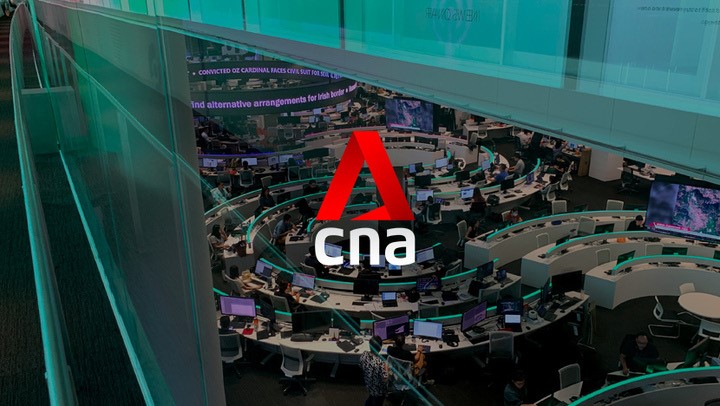SEOUL: A senior government official claimed that South Korea is in talks with mRNA vaccine companies such as Pfizer and Moderna to create COVID-19 shots in the nation, and that the country is willing to offer the ability to produce up to 1 billion doses right once. If approved, the initiative would help alleviate a global shortage of COVID-19 vaccinations, notably in Asia, which lags behind North America and Europe in vaccine rollouts, and would move South Korea closer to its goal of becoming a major vaccine manufacturing hub.
Three coronavirus vaccines developed by AstraZeneca and Oxford University, Novavax, and Russia are already being produced in South Korea. It also has an agreement with Moderna for vaccine bottling and packaging. In an interview with Reuters, Lee Kang-ho, director general of South Korea’s health ministry’s global vaccine hub committee, said, “We’ve been holding frequent conversations with big pharmaceutical companies to manufacture mRNA vaccines.” “Pfizer, Moderna, CureVac, and BioNTech are the only companies developing mRNA vaccines. As a result, they can only manufacture so much to meet world demand… South Korea is eager to assist by providing facilities and qualified human resources “Lee remarked. It was unclear how far these discussions had progressed or when a settlement will be reached.
Reuters reached out to BioNTech, Moderna, and CureVac for comment, but they did not respond.
“We do not have anything particular to announce at this time,” a Pfizer representative said, adding that the company is working to improve its COVID-19 vaccine supply chain.
READ: South Korea reports the greatest number of COVID-19 cases since January 7
Lee declined to name local vaccine manufacturers with urgent capacity to produce mRNA vaccines, but a government source claimed Hanmi Pharmaceuticals and Quratis are among them.
Hanmi acknowledged that it has a large capacity set aside for Sanofi’s diabetes medicine, which can now be utilised to produce the COVID-19 vaccine, as the Sanofi project has come to a halt.
“We happen to have this facility available right now because our clinical trial (with Sanofi) was halted in the middle of last year,” said Kim Soo-jin, Hanmi’s senior vice president.
“Having a completely ready, GMP, state-of-the-art plant available is extremely timely,” she said, referring to good manufacturing practice.
Quratis, a tuberculosis vaccine manufacturer, announced that its new factory, which opened last year, can now produce mRNA vaccines.
Following the Reuters article, Hanmi’s shares recovered early losses and surged about 7% on Monday (Jul 5), with its biggest shareholder Hanmi Science jumping 10.3%.
READ: South Korea announces a new budget of US$29 billion to help small businesses and create jobs
WHO IS INVOLVED IN THE COLLABORATION
Since US President Joe Biden and South Korean President Moon Jae-in agreed on a comprehensive partnership on COVID-19 vaccinations in May, South Korea has increased its efforts to produce more vaccines.
Lee stated that his team has regular video conference sessions with vaccine manufacturers as well as the World Health Organization (WHO).
Tarik Jasarevic, a spokesman for the World Health Organization, told Reuters that the organization is “talking with South Korea and other nations,” but declined to comment.
Last month, the WHO said that within nine to twelve months, it will establish a hub in South Africa to manufacture mRNA vaccines, giving enterprises from low- and middle-income nations the know-how and licenses to develop COVID-19 vaccines.
READ: Seoul postpones social distancing as COVID-19 cases surface surge mRNA vaccine companies may be hesitant to share their technology, but they can use South Korea’s raw material suppliers to alleviate a global scarcity of lipids, nucleotides, and capping chemicals, according to Lee. “They are capable of producing and developing such raw materials to assist vaccine makers… and the South Korean government is dedicated to providing all required assistance, including financial and administrative assistance.” Apart from the deal Moderna announced with Samsung BioLogics in May, Lee said the country has capacity for at least another 500 million doses of fill-and-finish vaccines. South Korea has agreed to buy 106 million doses of mRNA vaccines from Pfizer and Moderna this year in order to fully vaccinate its 52 million-strong population. Last Monday, the government announced that it will buy extra mRNA shots to use as a booster dose next year. ADD THIS TO YOUR BOOKMARKS: Our in-depth coverage of the COVID-19 pandemic and its progression For the most up-to-date information on the coronavirus outbreak, download our app or follow us on Telegram: https://cna.asia/telegram/n



